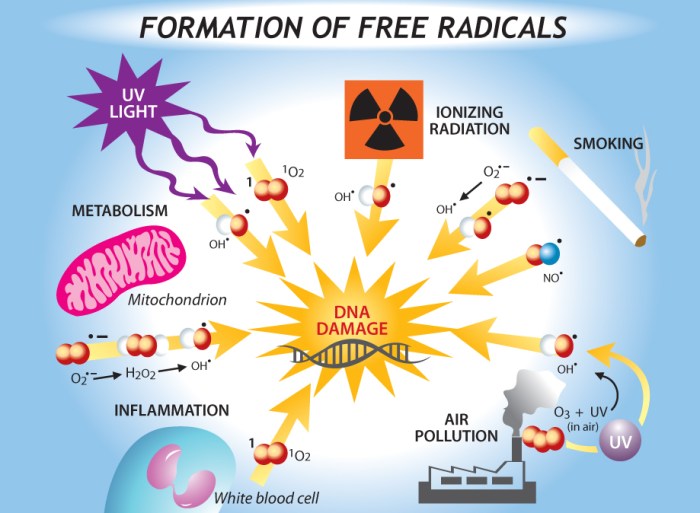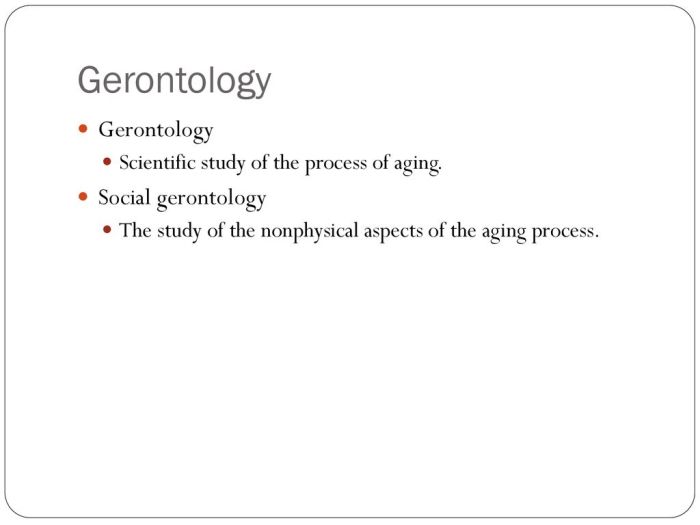The study of the nonphysical aspects of the aging process. – As the study of the nonphysical aspects of the aging process takes center stage, this opening passage beckons readers into a world crafted with authoritative knowledge, ensuring a reading experience that is both absorbing and distinctly original.
Delving into the enigmatic realm of the nonphysical, this exploration unravels the profound influence it exerts on our journey through the twilight years. From the intricate tapestry of emotions to the enigmatic depths of spirituality, we embark on a quest to illuminate the hidden truths that shape our aging experience.
Nonphysical Aspects of Aging

Aging is a complex process that encompasses not only physical changes but also nonphysical aspects that significantly impact an individual’s well-being. Nonphysical aspects of aging refer to the psychological, social, and cognitive changes that occur as people grow older.
Examples of nonphysical aspects of aging include:
- Cognitive decline, such as memory loss and decreased attention span
- Emotional changes, such as increased irritability or depression
- Social isolation and reduced social engagement
- Spiritual growth and a sense of purpose
- Increased wisdom and life experience
The Study of Nonphysical Aspects of Aging: The Study Of The Nonphysical Aspects Of The Aging Process.

The study of nonphysical aspects of aging is essential for understanding the multifaceted nature of the aging process and its implications for individuals, families, and society. It helps us develop interventions and policies that support healthy aging and promote well-being.
Different methods are used to study nonphysical aspects of aging, including:
- Longitudinal studies that track individuals over time
- Cross-sectional studies that compare different age groups
- Qualitative research that explores subjective experiences and perspectives
- Neuroimaging techniques that examine brain structure and function
Key Areas of Research
Research in the study of nonphysical aspects of aging focuses on several key areas:
Cognitive Functioning, The study of the nonphysical aspects of the aging process.
This area examines age-related changes in cognitive abilities, such as memory, attention, and problem-solving. Research investigates factors that contribute to cognitive decline and explores interventions to maintain or improve cognitive function.
Emotional Well-being
Research in this area focuses on the emotional changes that accompany aging. It examines factors that influence emotional well-being, such as social support, coping mechanisms, and life events. Interventions aim to promote emotional resilience and reduce the risk of mental health issues.
Social Engagement
This area of research explores the social aspects of aging. It investigates the impact of social isolation and loneliness on health and well-being. Research also examines factors that promote social engagement and healthy aging in place.
Spiritual and Existential Well-being
Research in this area explores the spiritual and existential dimensions of aging. It investigates the role of spirituality in coping with aging and end-of-life issues. Research also examines the impact of spiritual beliefs and practices on health and well-being.
Challenges and Opportunities

Studying nonphysical aspects of aging presents several challenges:
- The complexity and multifaceted nature of nonphysical aspects
- The difficulty in measuring and quantifying subjective experiences
- The influence of individual and cultural factors
Despite these challenges, there are significant opportunities for future research in this field:
- Developing innovative interventions to promote healthy aging
- Identifying biomarkers and risk factors for cognitive decline
- Understanding the role of social and environmental factors in aging
- Exploring the potential of technology to support healthy aging
Implications for Healthcare and Policy
The study of nonphysical aspects of aging has important implications for healthcare and policy:
Healthcare
Understanding nonphysical aspects of aging can help healthcare professionals provide more comprehensive and holistic care. It can inform the development of interventions that address the emotional, social, and cognitive needs of older adults.
Policy
Research findings can inform policy decisions that support healthy aging and address the challenges faced by older adults. For example, policies that promote social engagement, reduce isolation, and support cognitive health can improve the well-being of older adults.
FAQ Summary
What are the key areas of research in the study of nonphysical aspects of aging?
Research focuses on emotional well-being, cognitive function, social engagement, and spiritual growth.
How can studying nonphysical aspects of aging improve healthcare?
It enables healthcare professionals to provide more comprehensive and compassionate care, addressing the emotional and spiritual needs of older adults.